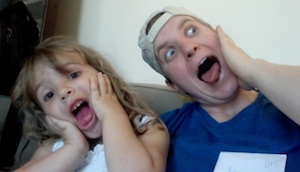Writing

“The Liberation of Young People,” UNC-Chapel Hill, PhD dissertation (2018).
Please contact me for additional paper drafts.
Research Statement
Liberation movements seek to end oppression. ‘Oppression’ is a word for the ways in which some groups of people unjustly dominate, control and harm other groups of people. Like other liberation movements, youth liberationists call for an end to oppression, specifically adultism, the oppression of youth by adults. Adultism is to the youth liberationist what sexism is to the feminist, and racism to the anti-racist. Youth liberationists believe that there is an adult-centered hierarchy and set of barriers whose undoing would necessarily make the world a better, more just place; contributing to this undoing is, thus, morally incumbent on all of us.
Notions of equality have played an important historical role in liberationist efforts to dismantle oppressive systems. The equality of young people has seemed by some to be an absurd contention, undermined by the “obvious” incapacities of at least very young children to make their own choices. Against this view, I argue that people of every age are equal not only in their interests (their relevantly similar interests matter equally), but also in their agency: where adults and children are relevantly similarly situated – and they often are – they have an equal claim to make their own choices. Of course, adults and children are not all similarly situated, but neither are adults all similarly situated to one another: different agents are situated differently, but the distinction between adults and children does not mark a special kind of difference. Children’s equality of agency has been wrongly attacked on the basis of adultist notions of rationality and moral development.
The wrongness of adultist systems and structures more readily comes into view against a backdrop of young people’s equality of agency. I describe adultism at length, appealing to analyses of oppression developed by Ann Cudd and Marilyn Frye. Both authors insist that oppression has a macroscopic structure, one that essentially involves harms inflicted by groups of people on other groups, not just at the level of individuals, and thus is sometimes difficult to recognize. Frye and Cudd both emphasize that oppression shapes our social institutions themselves and thus exists beyond personal prejudice or an individuals’ conscious favoring of some groups over others. Drawing on literature from the new childhood studies, a burgeoning interdisciplinary academic field, I elaborate on the complex and insidious nature of adultist structures. I explain the construction of childhood, children’s marginalization and powerlessness within an adult-centric world, and their subjection to violence and economic deprivation, the totality of which constitute the oppression of young people.
Finally, I consider some alternatives to the status quo of young people’s marginalization, silencing, and socially enforced powerlessness. I seek to make the aims of the youth liberation movement more articulate and plausible by looking at particular institutions and areas of our lives, and imagining what kind of practices and policies a liberationist approach might recommend. I encourage philosophers to take up a specific focus on young people, and I look at a variety of liberationist approaches that are already underway. Not only is the hierarchical moral binary that is taken to distinguish youth and adults unfounded, innovative challenges to this basic framework are gaining momentum. My hope is to articulate the aspirations of youth, child researchers and other people who work closely with youth, to respond to the anti-liberationists’ implausible assumption that no better way (other than marking a binary, hierarchical division) is possible. Children, whose imaginative capacities are demonstrably greater than adults’, and who know better than anyone else the hazards and frustrations of living in an adultist culture, ought to be the leaders in this task, incumbent upon all of us, of finding a better way.